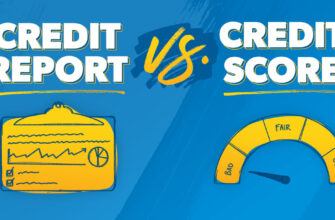Managing Credit Responsibly: Tips for Building and Maintaining Good Credit
Managing credit responsibly is essential for achieving financial stability and accessing opportunities in life. Whether you’re applying for a loan, renting an apartment, or even seeking employment, your credit history and credit profile play a significant role. This article aims to provide you with valuable tips and techniques to help you build and maintain good credit.
Responsible Credit Management Techniques
- Create a Budget: One of the first steps in managing credit responsibly is to create a budget. Assess your income and expenses to determine how much you can afford to borrow and repay comfortably. By sticking to a budget, you can avoid overspending and ensure timely credit payments.
-
Pay Bills on Time: Punctual bill payment is crucial for maintaining a good credit profile. Late payments can result in negative marks on your credit report and lower your credit score. Set up automatic payments or use reminders to stay on top of your financial obligations.
- Monitor Your Credit: Regularly monitoring your credit report allows you to identify any errors or fraudulent activities promptly. Utilize free annual credit reports from credit bureaus and consider using credit monitoring services to stay informed about changes in your credit profile.
- Keep Credit Utilization Low: Responsible credit management involves keeping your credit utilization ratio low. Aim to use less than 30% of your available credit limit to demonstrate to lenders that you can manage credit responsibly. Avoid maxing out credit cards and consider increasing your credit limits if necessary.
- Limit New Credit Applications: Each time you apply for new credit, it can temporarily lower your credit score. To maintain a good credit profile, limit the number of credit applications you make. Instead, focus on building a positive credit history with your existing accounts.

Establishing Credit History
- Open a Credit Card: If you’re new to credit, opening a credit card account is a great way to establish a credit history. Start with a secured credit card, where you provide a deposit as collateral. Make small purchases and pay off the balance in full each month to demonstrate responsible credit management.
- Become an Authorized User: Another option for building credit history is becoming an authorized user on someone else’s credit card. Choose a family member or a close friend with good credit and ensure that their credit card issuer reports authorized user activity to credit bureaus.
-
Apply for a Credit Builder Loan: Credit builder loans are specifically designed to help individuals build credit. These loans require you to make small monthly payments, which are reported to credit bureaus. Once you complete the loan term, you receive the funds along with an improved credit history.
Maintaining a Good Credit Profile
- Regularly Review Your Credit Report: To maintain a good credit profile, review your credit report at least once a year. Look for any discrepancies or inaccurate information and report them to the credit bureaus. Ensuring the accuracy of your credit report is essential for maintaining your creditworthiness.
- Diversify Your Credit Mix: Having a diverse mix of credit accounts, such as credit cards, loans, and mortgages, can positively impact your credit score. However, only take on credit that you can manage responsibly, and avoid opening unnecessary accounts.
- Avoid Closing Old Accounts: Closing old credit accounts can shorten your credit history and impact your credit score. If you have old accounts with positive payment histories, consider keeping them open, even if you no longer actively use them. Maintaining a long credit history demonstrates your ability to manage credit responsibly.
- Communicate with Creditors: If you’re facing financial difficulties, don’t ignore them. Instead, reach out to your creditors and explain your situation. Many creditors offer assistance programs that can help you manage your payments and avoid negative impacts on your credit.
Conclusion
Managing credit responsibly is a lifelong commitment that can positively impact your financial well-being. By implementing responsible credit management techniques, establishing a credit history, and maintaining a good credit profile, you can enhance your financial stability and open doors to future opportunities. Remember, building and maintaining good credit takes time and effort, but the long-term benefits are well worth it.









